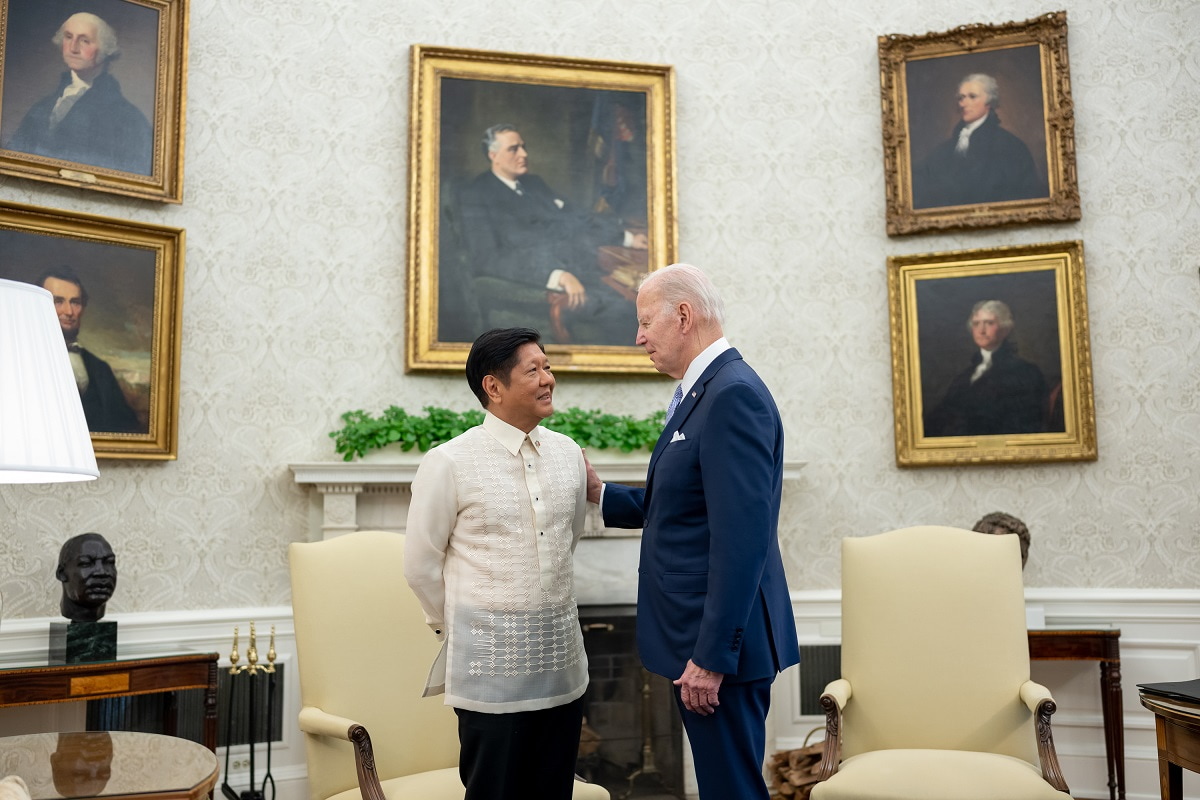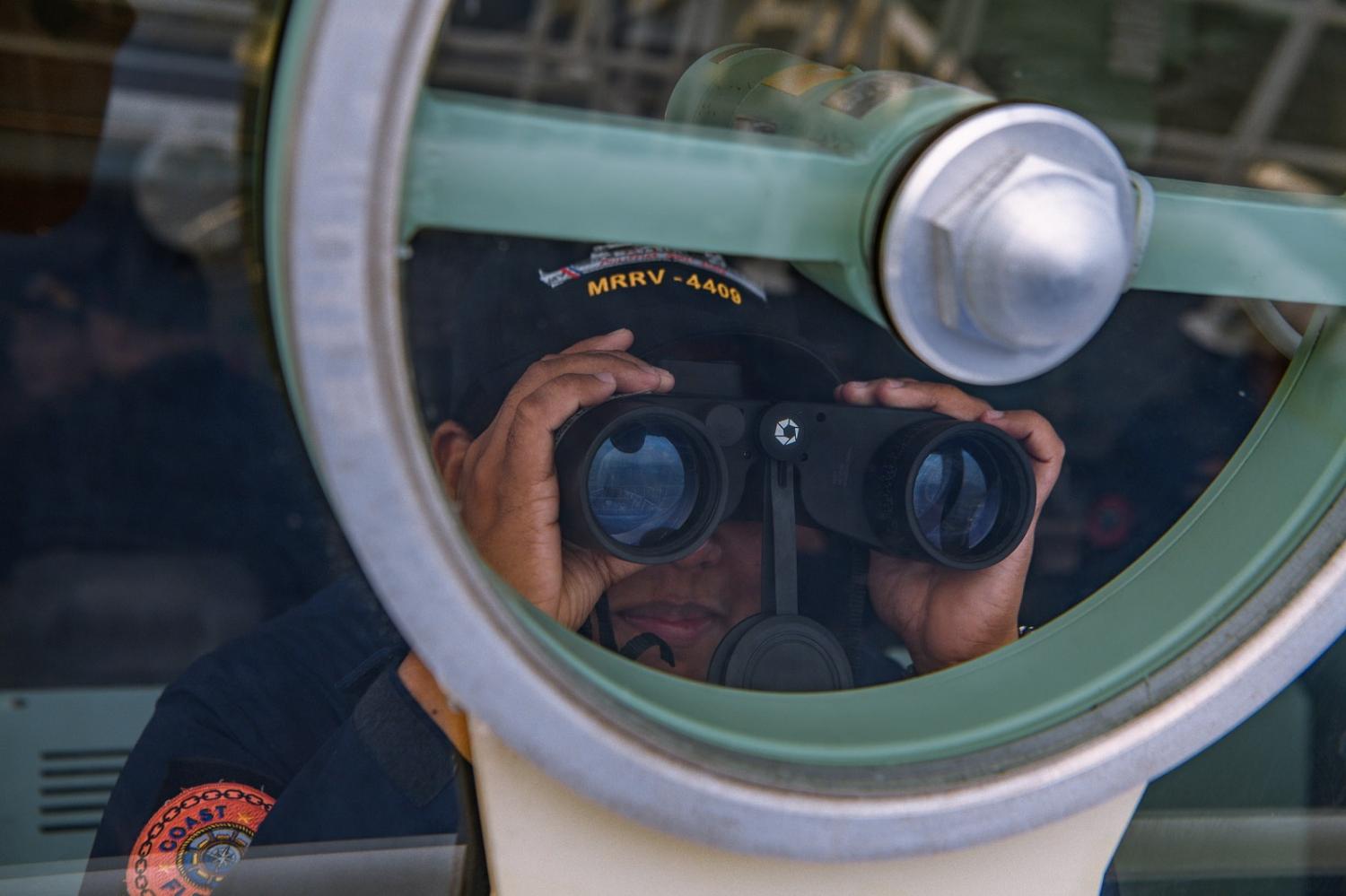After months of speculation, the White House has confirmed the inaugural Trilateral Leaders’ Summit between Japan, the Philippines and the United States. On 11 April, US President Joe Biden will host Philippines President Ferdinand Marcos Jr and Japanese Prime Minister Fumio Kishida in Washington to discuss “trilateral cooperation to promote inclusive economic growth and emerging technologies, advance clean energy supply chains and climate cooperation, and further peace and security in the Indo-Pacific and around the world”.
During the summit, Biden aims to “reaffirm ironclad alliances” with Japan and the Philippines, both treaty allies. To this end, Japan and the United States are planning to dramatically upgrade their security pact to enhance interoperability and smooth over potential differences in bilateral relations. Meanwhile, Biden and Marcos are set to “review the historic momentum in US-Philippines relations” amid discussions over tighter military and economic cooperation between the two allies.
Separately, Japan, which is scaling up its defence spending at home and aiming to become a major source of military hardware to likeminded Indo-Pacific nations, is also aiming to finalise a Visiting Forces Agreement-style deal with the Philippines this year. The rise of the Japan-Philippines-US (JAPHUS) trilateral grouping is clearly part of a broader wave of “minilateral” cooperation between the United States and its allies in the region, the most notable being the US-Japan-South Korea and Australia-UK-US (AUKUS) trilaterals.
Aside from the need to modernise alliances dating back to the mid-20th century, China’s resurgence is clearly the driving force behind the emerging JAPHUS and other similar US-led trilateral arrangements. In particular, JAPHUS aims to deter a potential Chinese invasion of the self-ruling island nation of Taiwan, which lies between prized Philippine and Japanese bases.
Through the upcoming trilateral summit, the Biden administration also hopes to institutionalise high-level strategic cooperation with both Japan and the Philippines. This is especially important given deepening concerns over the disruptive impact of Donald Trump’s potential return to the White House next year as well as the Dutertes in the Philippines.
In many ways, the election of Marcos Jr in 2022 proved decisive in the emergence of the trilateral alliance. After meeting Biden on the sidelines of the UN General Assembly and hosting US Secretary of State Antony Blinken in Manila, the Filipino president held an informal meeting with the US Vice President Kamala Harris and Prime Minister Kishida on the sidelines of the Association of Southeast Asian Nations Summit in Jakarta.

The critical moment, however, came earlier, during Marcos Jr’s visit to Tokyo in February 2023, when he openly discussed the merits and prospects of a trilateral arrangement. For his part, the US Ambassador to Japan, Rahm Emanuel, also openly backed the proposal, stating that “This is a significant strategic reshuffling [and] would be a major contribution to the strategic alignment in the area from a deterrence standpoint”.
Although the US ambassador did not mention China, it’s hard to miss the context of his statement. Just a month earlier, Marcos Jr made a disappointingly fruitless trip to Beijing, which ultimately convinced the Filipino president to shift gears. In a surprising move, he greenlighted the expansion of the Philippine-US Enhanced Defence Cooperation Agreement (EDCA) just as he welcomed closer military cooperation with Japan.
Over the succeeding months, the three allies signaled their commitment to a new era of cooperation by, inter alia, conducting unprecedented joint coast guard drills near the South China Sea as well as holding a trilateral meeting in Tokyo among their national security advisers.
The upcoming trilateral summit in Washington will be crucial for three major reasons. First, it has everything to do with Taiwan. Geographically, the Philippines’ northernmost islands, including a naval base in Mavulis, are fewer than 100 kilometres away from Taiwan’s southern shores, while Japan’s Sakishima Islands and Yonaguni Island are around 100 kilometres from the self-ruling island’s northern shores.
The success of any US-led deterrence strategy for Taiwan, therefore, will ultimately depend on coordination with and maximum cooperation from the two immediate neighbours, which also happen to be US allies. So far, Marcos Jr has tried to hedge his bets by sending mixed signals on his country’s stance on the Taiwan issue, but he has also admitted that some of the EDCA bases in northern Philippine provinces could “prove to be useful for us should that terrible occurrence [China’s full-scale invasion of Taiwan] come about”.
The April summit, therefore, is likely designed to cement the Philippines’ place in America’s broader plans to deter or resist any potential Chinese kinetic action against Taiwan in the future. In exchange for granting the Pentagon expanded access to its northernmost bases, the Philippines will likely seek greater reassurance and concrete assistance from both Washington and Tokyo in its ongoing tussle with China in the South China Sea.
Thus, the trilateral summit will likely also bolster a more robust and unified joint response by the three nations in the disputed waters, including regular joint patrols and drills as well as transfer of sophisticated weapons systems to facilitate the Philippines’ military modernisation over the coming years.
Finally, the summit is also a crucial step towards insuring against any potential political disruptions in the future. After all, former president Trump has signaled an even more transactional and unpredictable foreign policy should he recapture the White House next year, while the Dutertes, who are plotting their return to power, have become Beijing’s de facto proxies in the Philippines. By rapidly tightening their security cooperation and creating new realities on the ground, including institutionalised defence dialogues and military drills, the current leaders of Japan, the Philippines and the United States hope to insulate their strategic legacy from any unorthodox successors.

